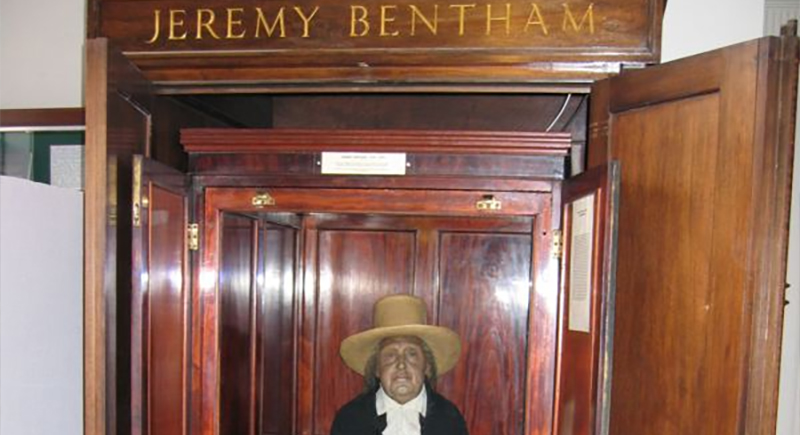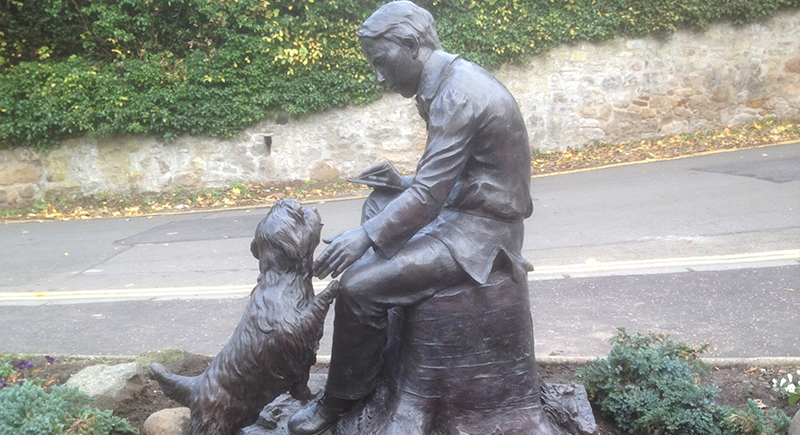15 Wildest Requests People Have Put in Their Wills
Most wills go unnoticed: basic, uneventful, and legally sound. But now and then, someone leaves behind a request that’s confusing, creative, or strangely specific. And while you might think that some of them are urban legends, they were actually written, signed, and witnessed as official last wishes.
Here’s a look at the most bizarre—and at times inconvenient—will clauses ever legally documented.
Spring-Loaded Coffin

Credit: Getty Images
While drafting a required will at work, one man included a line asking for his coffin to be spring-loaded. His goal was simple: startle any future archaeologist who opened it. The request was just a prank aimed at strangers, and his lawyer allowed it because absurdities can pass if they’re legally harmless and clearly stated.
Fountain For Humans and Animals

Credit: pixabay
City planners renovating a park discovered a restriction in the original deed, dated back to the 1910s. The clause demanded that the park include a water fountain with drinkable water “fit for man and beast alike,” or the land could legally revert to the donor’s descendants. The city complied by installing a new fountain with a dog bowl.
Goldfish Inherited £100,000 And Daily Avocado

Credit: Getty Images
A woman in the UK created a trust fund of £100,000 for her pet goldfish. She wanted the fish to eat fresh avocado daily and be looked after by a local dog walker. British law allows pet trusts, and the clause didn’t break any rules. Though pets can’t legally inherit money directly, the trust paid for the goldfish’s care.
Lawyer Left Fortune to a Stranger with the Most Kids

Credit: iStockphoto
In one of the more elaborate clauses, a Toronto lawyer left the majority of his estate to whichever local woman had the most children by a specific future date. Years later, the winner had ten children and received a substantial inheritance. The request, while legally sound, puzzled everyone involved.
A Rose Delivery for Life

Credit: Canva
Famous comedian Jack Benny arranged for a florist to deliver one red rose every day to his wife, Mary, for the rest of her life. He made the plan part of his will and paid the florist in advance. Mary didn’t know until the deliveries began and the gesture became a daily reminder of her husband’s thoughtfulness.
Estate Frozen Over Missing Chocolate Bars

Credit: Canva
One grandfather left a named chocolate bar for each of his many grandchildren. Several of them were hard to locate, which created a legal problem. Until every bar was distributed, the estate couldn’t be settled. The court required the executor to prove that efforts were made to find all beneficiaries, even for candy.
Children Received Cats They Didn’t Want

Credit: Getty Images
The children inherited only the family cats—and nothing else—because their parents had grown to resent the animals. The kids had brought the cats into the home years earlier and refused to rehome them, despite their parents’ repeated complaints. In response, the parents left everything else—art, money, property—to charities and friends.
One Penny and a Personal Insult for Each Relative

Credit: Getty Images
This will turned personal grievances into legal instructions. A grandmother left one cent to nearly every relative and attached a cutting remark to each name. Only one grandchild received a meaningful amount, which suggested that the choices were made on purpose. Though courts can contest wills under certain conditions, this one showed no signs of mental decline.
Pringles Can for Burial

Credit: pexels
We all know the Pringles can was invented to keep chips stacked and intact by Fred Baur, a food storage technician at Procter & Gamble. He took deep pride in the design, so much so that he included it in his will. He asked to be cremated and buried in a Pringles can. His family chose Original flavor and fulfilled the desire exactly as written.
Posthumous Public Display

Credit: Wikimedia Commons
British philosopher Jeremy Bentham wrote that his body should be preserved, dressed, and displayed seated in a wooden cabinet. His head, originally part of the plan, didn’t preserve well and was eventually replaced with a wax model. His preserved skeleton still sits at University College London.
Dog Euthanasia

Credit: Getty Images
Emotionally charged clauses in wills often create conflict between personal wishes and legal boundaries. This was witnessed by people when a woman asked that her dog be euthanized and buried beside her if it survived her. While her instructions were clear, the law didn’t support them. The executor had to seek guidance from attorneys and animal welfare authorities.
Business Tie Passed On

Credit: Getty Images
There was nothing valuable about the tie itself—a navy blue piece covered in pink elephants—but the man who owned it believed it gave him an edge. He wore it in business meetings to unsettle people and claimed that anyone bold enough to wear something that ridiculous couldn’t be easily intimidated. In his will, he passed it to his grandson with a note about confidence.
A Furby Collection and a Bug

Credit: pexels
After a relative’s passing, her full collection of 1990s Furby toys was entrusted to a woman, while another cousin got a taxidermied silk moth. What’s surprising is that neither recipient had close relationships with the deceased. However, they kept their inheritances as odd reminders of the woman’s personality.
Wife Couldn’t Sell House Until Cat Died

Credit: pexels
Keeping a house off the market for nearly two decades isn’t common, but one pet parent made it happen. In her will, she stated that her cats must continue living in her home after her death. A friend inherited the property, but only while the cats remained alive and properly cared for.
Robert Louis Stevenson Gave Away His Birthday

Credit: Wikimedia Commons
Instead of leaving behind property or money, author Robert Louis Stevenson gave away something unexpected—his birthday. A close friend had been born on Christmas Day and often felt her celebration was ignored. Stevenson wrote into his will that she could have his birthday, November 13, as her own. It wasn’t legally enforceable, but her family honored it anyway.